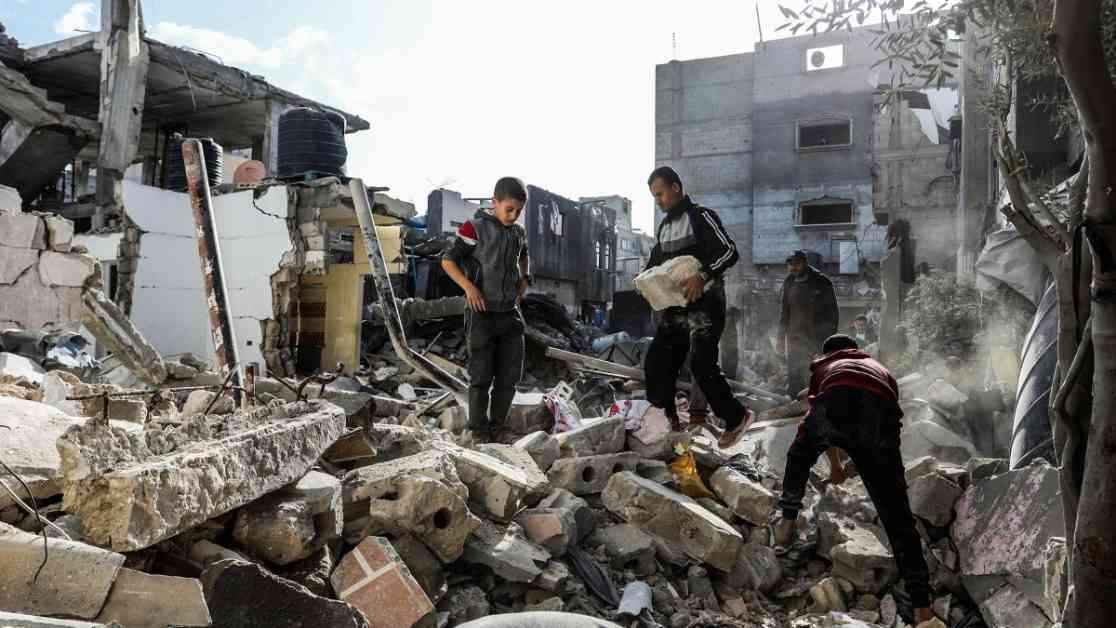Israel escalated military action in Gaza, launching a series of deadly strikes that threatened to unravel the fragile ceasefire with Hamas. The Israeli military targeted Hamas strongholds across the Gaza Strip, intensifying their efforts to secure the release of hostages and sending evacuation orders to several neighborhoods in the enclave.
The health ministry in Gaza reported at least 404 people killed and more than 560 injured, with many still trapped under rubble. Dr. Muneer Al-Boursh, the ministry’s director-general, revealed that most of the victims were women and children, urging residents to donate blood to aid the crisis.
As tensions mounted, Hamas accused Israeli officials of violating the ceasefire terms, hinting at a potential breakdown in the agreement. The situation grew dire, with video footage capturing the chaos on the ground as people were rushed to hospitals, bloodied bodies laid out on stretchers, including young children.
Subheadings
Evacuation Orders and Combat Zones
The Israeli military issued evacuation orders to Palestinians in Beit Hanoun, Khirbet Khuza’a, Abasan al-Kabira, and al-Jadidah, designating these areas as “dangerous combat zones.” Residents were advised to seek safety in shelters in western Gaza City and Khan Younis. International Response and Calls for Ceasefire
The United Nations Secretary-General António Guterres expressed shock at the civilian casualties in Gaza, calling for a ceasefire, humanitarian aid, and the unconditional release of hostages. The Hostages and Missing Families Forum pleaded for a return to peace amid escalating airstrikes, highlighting the plight of those held captive in Gaza.
The United Nations Secretary-General António Guterres expressed shock at the civilian casualties in Gaza, calling for a ceasefire, humanitarian aid, and the unconditional release of hostages. The Hostages and Missing Families Forum pleaded for a return to peace amid escalating airstrikes, highlighting the plight of those held captive in Gaza.
White House press secretary Karoline Leavitt confirmed that Israel had consulted with the Trump administration about the strikes, underscoring the global implications of the conflict. The escalation followed previous Israeli military actions that resulted in additional casualties, escalating tensions between the two sides.
Despite the ceasefire agreement reached earlier in January, accusations of truce violations persisted on both sides. Talks for the release of hostages taken by Hamas in 2023 were stalling, prompting Israeli Prime Minister Benjamin Netanyahu to authorize stronger military action against the terrorist organization.
With Hamas rebuffing offers from international envoys and mediators, including the U.S. presidential envoy, tensions in the region continued to rise. The delicate balance between peace negotiations and military confrontation teetered on the brink, threatening to plunge the region into further turmoil.
In a tumultuous landscape where political brinkmanship meets humanitarian crises, the people of Gaza and Israel find themselves caught in a relentless cycle of violence and uncertainty. As the world watches with bated breath, the hope for a lasting peace in the region hangs in the balance, dependent on the delicate dance between diplomacy and military force.







































